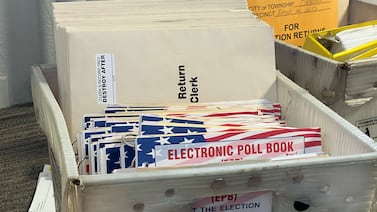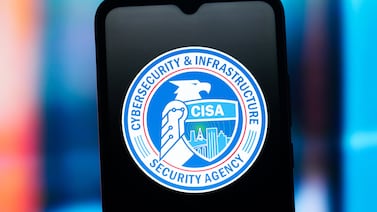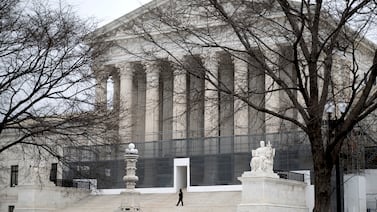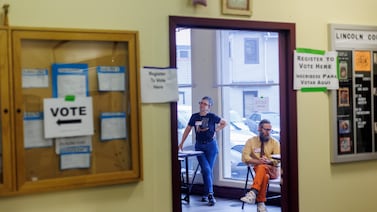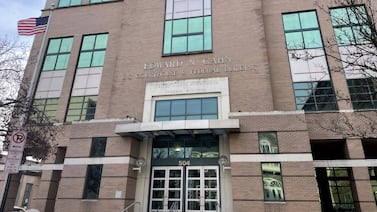Votebeat is a nonprofit news organization reporting on voting access and election administration across the U.S. Sign up for Votebeat Pennsylvania’s free newsletter here.
What happened? The Pennsylvania Supreme Court said Friday that it will take up a case, Baxter v. Philadelphia, on whether requiring voters to date mail ballot envelopes violates the state constitution.
What’s the dispute? Pennsylvania’s 2019 no-excuse mail voting law, Act 77, says mail voters must sign and date their ballot return envelope for their vote to be counted. Thousands of voters have had their ballots rejected in every election because the envelopes lacked a proper date. The validity of the dating requirement has been disputed for years, but the issue in the current case is whether it violates the “free and equal” election clause of the Pennsylvania Constitution, which bars any interference with “the free exercise of the right of suffrage.” Voting rights advocates argue that because election officials do not use the handwritten date to determine a ballot’s eligibility, it represents an unnecessary — and unconstitutional — burden that interferes with voting.
Who are the plaintiffs? The plaintiffs are Brian Baxter and Susan Kinniry, two Philadelphia voters whose mail ballots in September 2024 special elections were rejected for lacking a date. They’re represented by the American Civil Liberties Union of Pennsylvania and the Public Interest Law Center. On the other side are Republican groups that have sought to defend the requirement. Other groups have also intervened on either side, including the Pennsylvania Department of State, the state Democratic Party, and state House and Senate Republicans.
What are they asking for? They initially asked a local court in Philadelphia to declare that the Philadelphia Board of Elections had violated their constitutional rights by deciding not to count the ballots. The court agreed, as did the Commonwealth Court, an appellate court. Republican groups challenged the decision to the state Supreme Court.
What happens now? The Supreme Court is taking up the case and has directed the plaintiffs to notify the state attorney general of the Republicans’ challenge. Republican Dave Sunday, who will be sworn in soon as attorney general, can choose whether to intervene in the case. The court may then order written or oral arguments on the case.
Read more of Votebeat’s recent coverage of challenges to the dating requirement:
- Pennsylvania Supreme Court stops 3 counties from counting undated, incorrectly dated ballots, Nov. 18, 2024
- Philadelphia must count undated and misdated mail ballots from September election, Pa. court rules, Oct. 30, 2024
- Pennsylvania Supreme Court restores date requirement for mail ballots, voiding lower-court ruling, Sept. 13, 2024
- Mail ballots can’t be rejected over improper date on envelope, Pennsylvania court rules, Aug. 30, 2024
- Pennsylvania’s rule on dating mail ballots faces new challenge in state court, May 29, 2024
Carter Walker is a reporter for Votebeat in partnership with Spotlight PA. Contact Carter at cwalker@votebeat.org.

